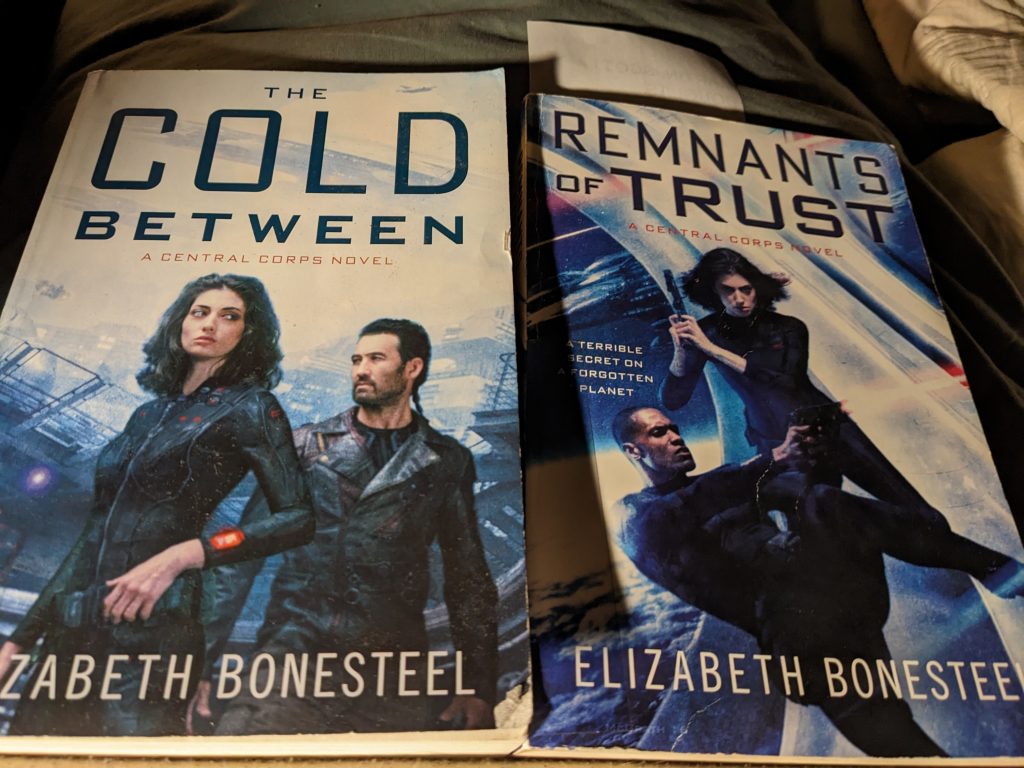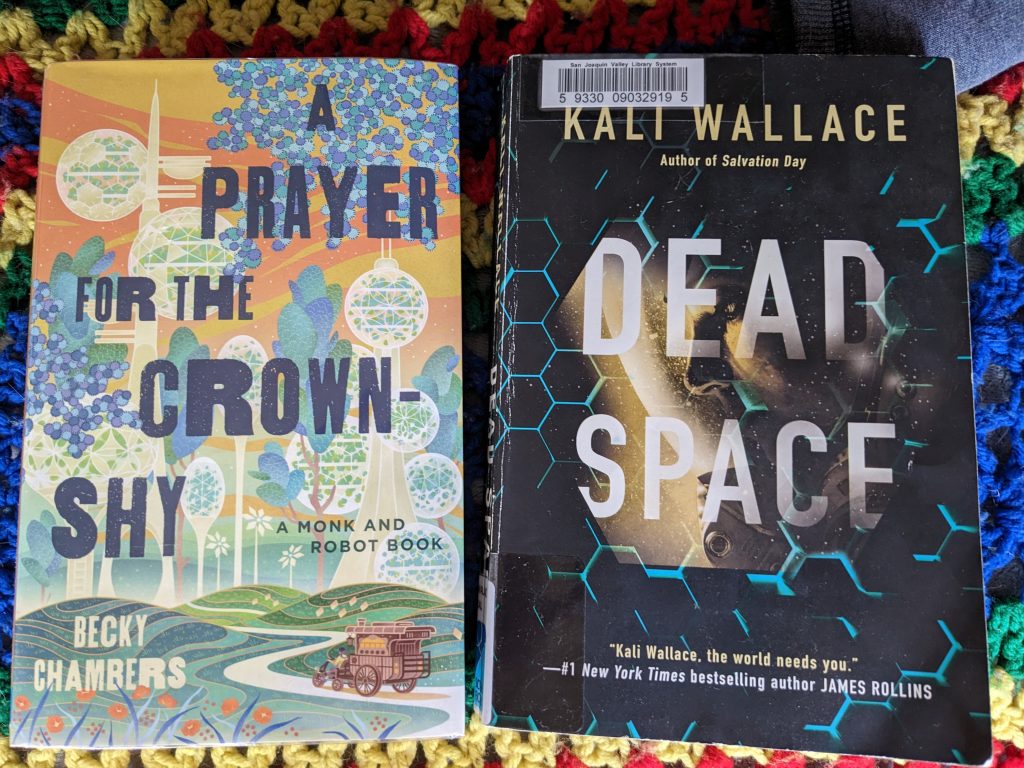(As of 9/21/2023)
Light from Uncommon Stars by Ryka Aoki. Set in the world of today, it’s mostly an excellent story; the primary POV was Katrina Nguyen, a young violin prodigy on the run. She’s very much a modern youth, who interacts oddly with Shizuka Satomi, a violin teacher with a dark past. In parallel, Lan Tran, a starship captain in disguise runs a donut shop. I had to push past the “you’re putting peanut butter in my chocolate” for the melding of modern, fantasy, and space opera; fortunately, the strong characters keep you riveted and moving through.
The River Road by Karen Osborn. Another book set in the world of today, without any fantasy to relieve it. It’s mostly about how two families deal (and fail to deal) with tragedy. There’s a lot of confused memory, glorious flashbacks and unbridled youth. It’s a very nicely textured deep look at a rural near town friendship, and the slices we each see of each other.
Crip Up the Kitchen is a book filled with excellent advice about how to work around disabilities and conserve spoons, with careful and detailed explanations for the various tools and their uses. The recipes are similarly carefully detailed and thoroughly explained — even new cooks, and cooks exploring new tools are setup for success. The stories of adaptation and perseverance are excellent and inspiring; the gatekeeping lectures preceding each recipe that the author has a personal cultural connection to were wearying and repetitious.
Best American Science Fiction and Fantasy 2018, N. K. Jemsin Editor. A very broad mix of short stories, most relatively short and well crafted. I’d come across a few stories in other collections, and they run the gamut from quite familiar to entirely unique. Not every story was a great match for my taste – but the majority were, and craft was evident in them all.


